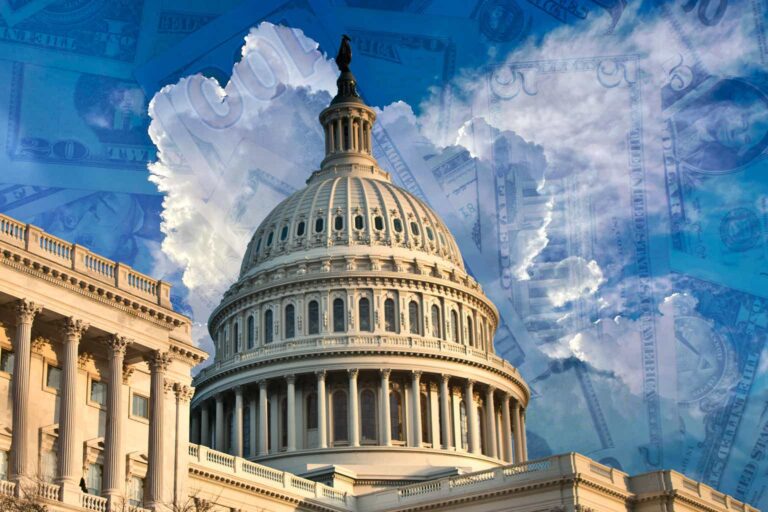No surprise
Ahead of Memorial Day, we want to express appreciation to the brave men and women who have made the ultimate sacrifice for our freedom. Seeking Alpha wishes all our subscribers a beautiful holiday weekend and let us remember those who courageously gave their lives. Wall Street Breakfast won’t be published with markets closed on Monday, but tune back in Tuesday.
Debt talks appear to be nearing the end amid reports that a potential deal would raise the U.S. government’s $31.4T debt ceiling and limit spending on most items for two years. A deal is expected to be hammered out by today afternoon, U.S. Representative Kevin Hern (R-Oklahoma), who leads the largest Republican caucus, said.
Dig deeper: Republican negotiators have reportedly agreed for a smaller 3% increase in defense spending. Non-defense discretionary spending is expected to be maintained at current levels. The White House is said to be mulling scaling back on increased funding for the Internal Revenue Service, cutting $10B from an $80B budget increase for the agency that was planned under the Inflation Reduction Act to target wealthy individuals. White House and Republican debt limit proposals now differ by around $70B on discretionary spending.
Contingency plan: The Biden administration is looking at a contingency plan that was created after the 2011 debt-ceiling impasse. Under the plan, federal agencies would submit payments to the Treasury no sooner than the day before they’re due. By contrast, under the current system payment files may be submitted well before their due dates. If the Treasury doesn’t have enough funds to make a full day’s worth of payments, it would likely delay paying them until it does. The Treasury has been preparing for possibly delaying some payments after June 1.
SA commentary: ANG Traders, Investing Group leader of ‘Away From The Herd’, said the best outcome would be the debt ceiling being raised without spending cuts. “A clean debt-ceiling raise would maintain the flow rate which could push the stock market to new highs,” he said. Contributor James Picerno said Treasury yields will remain a crucial real-time measure of how the market is pricing in debt ceiling risk. “For the moment, the implied takeaway via the crowd is that a deal that averts default is still the baseline assumption,” he said. (36 comments)
Tracking inflows
The iShares 20+ Year Treasury Bond ETF (TLT) currently sits atop the capital flow leaderboard for exchange traded funds in 2023. The ETF has now amassed more investor cash than any other ETF so far this year, taking its total assets under management to $37.30B. TLT has been able to accumulate $10.37B year to date, topping the inflows for the iShares MSCI USA Quality Factor ETF (QUAL), Vanguard S&P 500 ETF (VOO) and JPMorgan Equity Premium Income ETF (JEPI), which have seen the second, third and fourth most significant inflows in 2023. These ETFs have attracted $9.40B, $9.04B and $8.36B, respectively. SA contributor Johnny Zhang believes TLT can still generate positive returns through coupon payments if the U.S. experiences a soft landing. If the U.S. slips into a severe recession, TLT can rally as a hedge against market turmoil. “In all scenarios, a tactical allocation strategy, such as gradually selling TLT during a severe recession, can be attractive.” (19 comments)
Supercharger access
Ford Motor (F) has struck a deal with Tesla (TSLA), through which its customers will gain access to more than 12,000 Tesla Superchargers across the U.S. and Canada. The arrangement will double the number of fast-chargers available to Ford electric vehicle customers starting Spring 2024. A Tesla-developed adapter will provide Ford F-150 Lightning, Mustang Mach-E and E-Transit vehicles fitted with the Combined Charging System port access to Tesla’s V3 Superchargers. Notably, Ford said it will start equipping future EVs with the NACS charge port in 2025 to remove the need for an adapter for direct access to Tesla Superchargers. Seeking Alpha contributor The Asian Investor believes Ford has the strongest EV line-up in its history. “With production ramping up for the F-150 Lightning, I expect Ford to experience a gradual rebound in EV deliveries throughout the remainder of the year.” (127 comments)
Hardline stance
The New York City Banking Commission voted unanimously to freeze the city’s deposits in Capital One (COF) and KeyBank (KEY) for up to two years as they failed to submit plans showing efforts to root out discrimination. The banks will be able to service existing contracts for one year. According to the commission’s rules, banks seeking to hold public funds must file certificates on their non-discrimination policies. The commission said Capital One, which held $7.2M in NYC’s deposits at April-end, and KeyBank, which held $10M in NYC’s deposits at April-end, refused to submit the required policies. Both banks disagreed, saying they have made the necessary submissions. NYC Comptroller Brad Lander also voted against designating three other banks to hold public funds – International Finance Bank, PNC Bank (PNC), and Wells Fargo (WFC). (54 comments)


